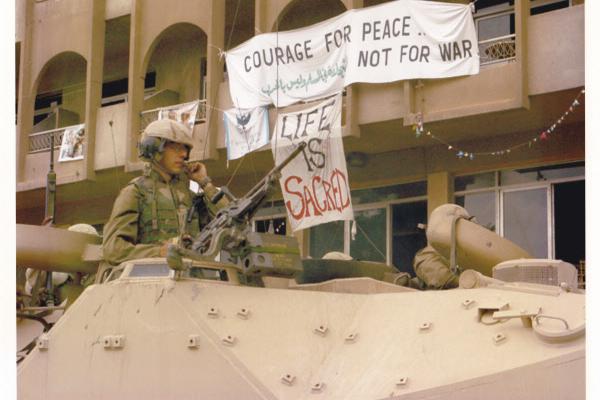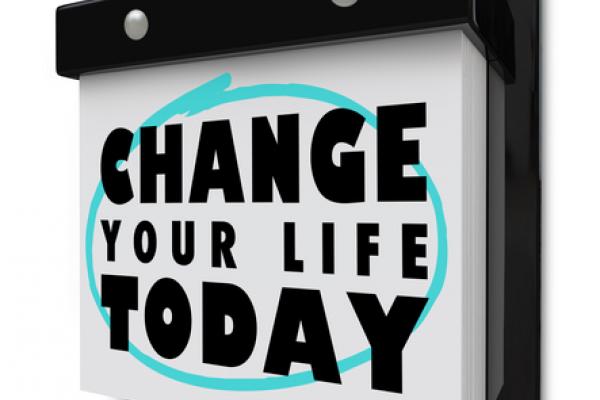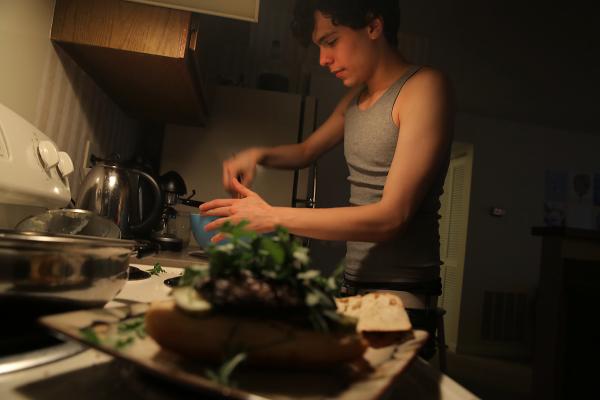Editor's Note: Pope Francis delivered the following homily at his inaugural Mass on Tuesday, emphasizing the need to protect the poor and the environment.
Dear Brothers and Sisters,
I thank the Lord that I can celebrate this Holy Mass for the inauguration of my Petrine ministry on the solemnity of Saint Joseph, the spouse of the Virgin Mary and the patron of the universal Church. It is a significant coincidence, and it is also the name-day of my venerable predecessor: we are close to him with our prayers, full of affection and gratitude.
I offer a warm greeting to my brother cardinals and bishops, the priests, deacons, men and women religious, and all the lay faithful. I thank the representatives of the other Churches and ecclesial Communities, as well as the representatives of the Jewish community and the other religious communities, for their presence. My cordial greetings go to the Heads of State and Government, the members of the official Delegations from many countries throughout the world, and the Diplomatic Corps.
In the Gospel we heard that "Joseph did as the angel of the Lord commanded him and took Mary as his wife" (Mt 1:24). These words already point to the mission which God entrusts to Joseph: he is to be the custos, the protector. The protector of whom? Of Mary and Jesus; but this protection is then extended to the Church, as Blessed John Paul II pointed out: "Just as Saint Joseph took loving care of Mary and gladly dedicated himself to Jesus Christ’s upbringing, he likewise watches over and protects Christ’s Mystical Body, the Church, of which the Virgin Mary is the exemplar and model" (Redemptoris Custos, 1).
How does Joseph exercise his role as protector? Discreetly, humbly and silently, but with an unfailing presence and utter fidelity, even when he finds it hard to understand. From the time of his betrothal to Mary until the finding of the twelve-year-old Jesus in the Temple of Jerusalem, he is there at every moment with loving care. As the spouse of Mary, he is at her side in good times and bad, on the journey to Bethlehem for the census and in the anxious and joyful hours when she gave birth; amid the drama of the flight into Egypt and during the frantic search for their child in the Temple; and later in the day-to-day life of the home of Nazareth, in the workshop where he taught his trade to Jesus.
VATICAN CITY — Pope Francis issued a powerful call for the protection of the environment and of society’s most vulnerable during his formal installation Mass at the Vatican, while qualifying his papal power as a “service” to the church and to humanity.
The pope on Tuesday celebrated a solemn Mass in St. Peter’s Square in front of an estimated 200,000 people, as well as political and religious leaders from all over the world.
During the Mass, Francis received the symbols of his papal authority over the world’s 1.2 billion Roman Catholics: the pallium, a lamb’s wool stole that recalls Jesus as the Good Shepherd, and the “ring of the fisherman.”
In keeping with the low-key style that has been the hallmark of his pontificate so far, Francis presided over a somewhat simpler, and definitely shorter, rite than the one that marked the start of Benedict XVI’s reign in 2005.
Francis was slowly driven around a sun-drenched St. Peter’s Square in an open-top car, shunning the bulletproof, air-conditioned popemobile preferred by his predecessors. At one point, he asked to stop the car and got out to bless a disabled person.
In his homily, delivered in Italian, Francis described the church’s mission as “respecting each of God’s creatures and respecting the environment in which we live.”
Current and former U.S. officials have told the Los Angeles Times that the CIA is gathering intelligence on Islamic extremists in Syria as part of contingency planning for possible drone strikes. Although drone strikes have not been considered or authorized, according to the Times:
“The Counterterrorism Center, which runs the CIA’s covert drone killing program in Pakistan and Yemen, recently shifted several targeting officers to improve intelligence collection on militants in Syria who could pose a terrorist threat, the officials said.
“The targeting officers have formed a unit with colleagues who were tracking Al Qaeda operatives and fighters in Iraq. U.S. officials believe that some of these operatives have moved to Syria and joined Islamic militias battling to overthrow President Bashar Assad.
“The CIA effort, which involves assembling detailed dossiers on key militants, gives the White House both lethal and nonlethal options if it concludes that Syria’s 2-year-old civil war — which has caused 70,000 deaths, according to United Nations estimates — is creating a haven for terrorists.”
Ten years ago, in March of 2003, Iraqis braced themselves for the anticipated “Shock and Awe” attacks that the U.S. was planning to launch against them. The media buildup for the attack assured Iraqis that barbarous assaults were looming. I was living in Baghdad at the time, along with other Voices in the Wilderness activists determined to remain in Iraq, come what may. We didn’t want U.S.-led military and economic war to sever bonds that had grown between ourselves and Iraqis who had befriended us over the past seven years. Since 1996, we had traveled to Iraq numerous times, carrying medicines for children and families in open violation of the economic sanctions that directly targeted the most vulnerable people in Iraqi society — the poor, the elderly, and the children.
I still feel haunted by children and their heartbroken mothers and fathers whom we met in Iraqi hospitals.
“I think I understand,” murmured my friend Martin Thomas, a nurse from the U.K., as he sat in a pediatric ward in a Baghdad hospital in 1997, trying to comprehend the horrifying reality. “It’s a death row for infants.”
The top 10 or 20 bestselling books at Amazon.com vary slightly from hour to hour, day to day, but one thing remains pretty constant: There are always several books on spirituality, often with Protestant evangelical leanings; and there are always books on diet, promising either dramatic weight loss or astounding well-being through some “revolutionary” plan.
Even within the category of “Religion and Spirituality,” some of the most popular books focus on diet and bodily health, and when they don’t, they focus on happiness via the most direct route. They’re all about “how to be successful and happy,” “how to make miracles happen,” and “how to know that there really is a heaven, and that you’re going there.”
Having been a skeptic for as long as I can remember, I’ve never had much patience with those books. If books (and checkout-stand magazines, for that matter) really held the secrets for people to “get skinny by this weekend” or “beat cancer with these super-foods,” why did people from my church choose gastric bypass surgery, and why did my father (a pastor) perform so many funerals for the non-survivors of cancer? And if miracles could happen, and people could find success, happiness, and assurance of a place in a heaven that’s “for real,” why, throughout the course of my pious Bible-reading upbringing, did I never seem to find anything in the Bible that sounded remotely like that?
"Blessed are the peacemakers, for they shall be called sons [and daughters] of God.”
Matthew 5: 9 from the Beatitudes
I grew up watching casualty reports from the Vietnam War on TV. My Uncle Bill, a lieutenant colonel in the Air Force, was serving there. My family watched the news every evening to learn about the latest casualty reports. I was too young to understand the anxiety of my parents, but I felt the tension while Uncle Bill was deployed.
As an adult, it’s been a different story. I understand and experience things more fully and have an emotional connection to what I see and hear. That has been true for the last decade. Ten years ago, the Iraq War began. Ten years marked by conflict, violence, and loss. Ten years of debate about why we went to war and why we remained. Ten years dealing with death and injury – 4,488 U.S. deaths and 32,321 soldiers coming home with significant injuries. Suicide rates of soldiers are so high it is impossible to ignore – some while in Iraq and others after returning home. Traumatic brain injuries, grieving families, moral injury, and multiple limb loss are just a few of the constant reminders of the tremendous costs of war. The toll on the nation’s economy has been long lasting as well. The jobless rate among veterans is staggeringly high.
The human toll has been significant. But military personnel aren’t the only causalities of this war. Numbers vary, but statistics tell us more than 100,000 Iraqi citizens also have been killed and nearly 3 million have been displaced.
These figures cannot be ignored. And they are the results of war.
What would an “atheist Lent” look like? A group of young nonbelievers are finding out, observing the Christian practice minus its religious context.
They have given up alcohol, animal products, and various Internet and cellphone interactions. One has vowed to make a daily Lenten practice of telling those he encounters how important they are to him.
But their observance of the 40-day period in which many Christians abstain from worldly desires in a bid to come closer to God has upset some atheists who say borrowing religious traditions is antithetical to nontheism.
The exercise has also illustrated a divide in the nontheist community – between older atheists who see religion as inherently evil and younger atheists who are more open to interactions with religious belief.






